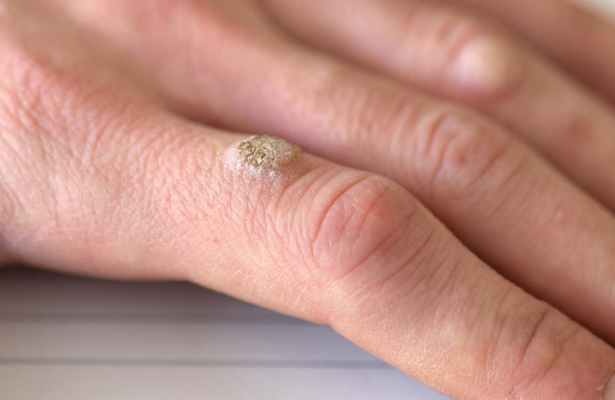- Home
- Editorial
- News
- Practice Guidelines
- Anesthesiology Guidelines
- Cancer Guidelines
- Cardiac Sciences Guidelines
- Critical Care Guidelines
- Dentistry Guidelines
- Dermatology Guidelines
- Diabetes and Endo Guidelines
- Diagnostics Guidelines
- ENT Guidelines
- Featured Practice Guidelines
- Gastroenterology Guidelines
- Geriatrics Guidelines
- Medicine Guidelines
- Nephrology Guidelines
- Neurosciences Guidelines
- Obs and Gynae Guidelines
- Ophthalmology Guidelines
- Orthopaedics Guidelines
- Paediatrics Guidelines
- Psychiatry Guidelines
- Pulmonology Guidelines
- Radiology Guidelines
- Surgery Guidelines
- Urology Guidelines
Epicutaneous heat patch safe and effective treatment of Warts

Local hyperthermia delivered by epicutaneous heat patches is effective, well-tolerated, safe, result in complete clearance of warts.
Hyperthermia is believed to be effective for treating warts using a hot water technique as well as an ultrasound hyperthermia technique. Recently, local hyperthermia has grabbed the attention of dermatologists for the treatment of cutaneous warts. A study published in the Journal of Drugs in Dermatology has shown that local hyperthermia delivered by epicutaneous heat patches is effective, well-tolerated, safe and may cause complete clearance of warts.
A wart is a small growth on the skin that may look like a solid blister or a small cauliflower. Types of wart include common warts, flat warts, pigmented warts, and plantar warts. Black dots in the wart are blood vessels that can lead to bleeding. Most warts disappear in 1 to 5 years without medical treatment, but treatment is available for warts that are large, numerous, or in sensitive areas. Treatments include salicylic acid, duct tape, cryotherapy, surgery, laser treatment, electrocautery, photodynamic therapy, chemical treatments, topical creams, cantharidin, and antigen shots.
In the present study, the investigators have performed an uncontrolled, proof of concept study by applying a novel, reproducible, epicutaneous heat patch to a target wart for 2 hours per day for 12 weeks. There were 15 evaluable participants. An untreated wart was also observed and measured. Wart measurements included the diameter in two dimensions, an investigator global assessment (IGA) score, wart clearance, and monitoring for adverse events as endpoints at week 12 (end of treatment) and week 24 (end of study).
The investigators observed complete clearance of both warts in 46.7% participants at week 24, However, the small sample size and lack of independent control in each participant were the main limiting factors of the study.
The authors concluded that local hyperthermia delivered by epicutaneous heat patches was well-tolerated, safe, and achieved complete clearance in both treated as well untreated warts in 46.7% of participants at week 24 after 12 weeks of daily use.
Read more about the study at:
Journal of Drugs in Dermatology
An Open Label Study of an Occlusive Heat Patch in the Treatment of Warts
J Drugs Dermatol 2019 Apr 01;18(4)368-373, RJ Antaya, M del Carmen, F Alonso, N Sukumar, F Yong, I Dvoretzky

Disclaimer: This site is primarily intended for healthcare professionals. Any content/information on this website does not replace the advice of medical and/or health professionals and should not be construed as medical/diagnostic advice/endorsement or prescription. Use of this site is subject to our terms of use, privacy policy, advertisement policy. © 2020 Minerva Medical Treatment Pvt Ltd